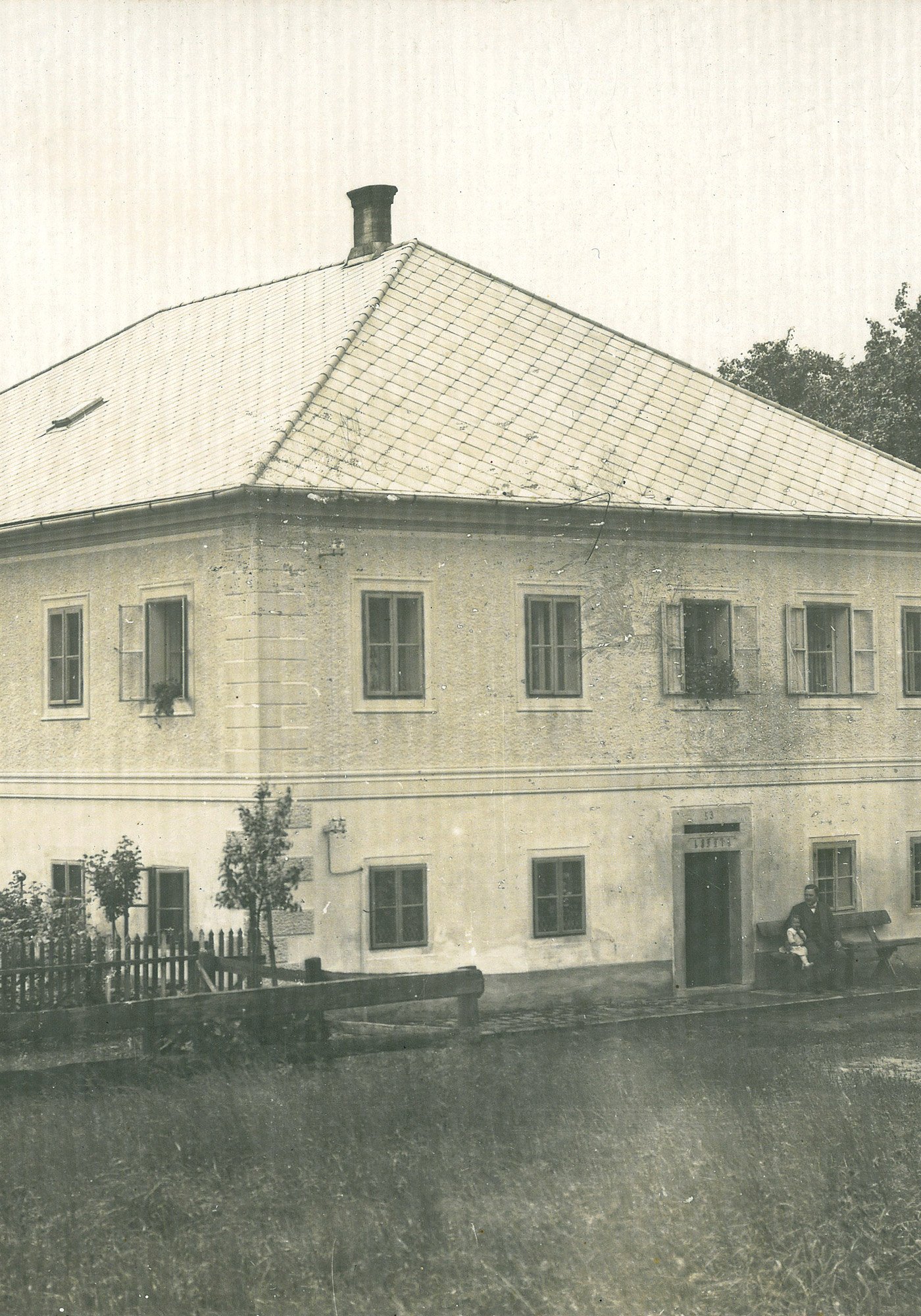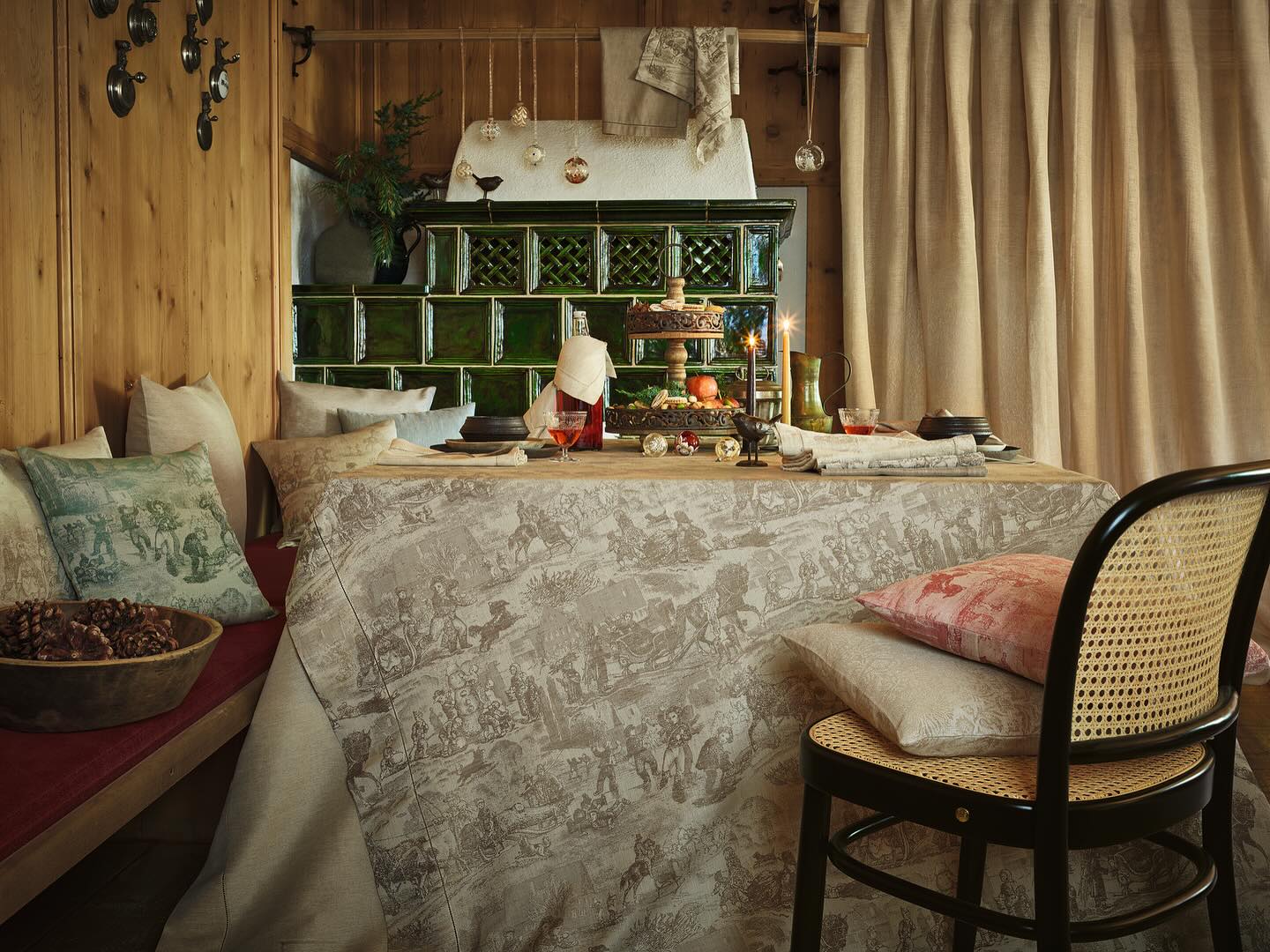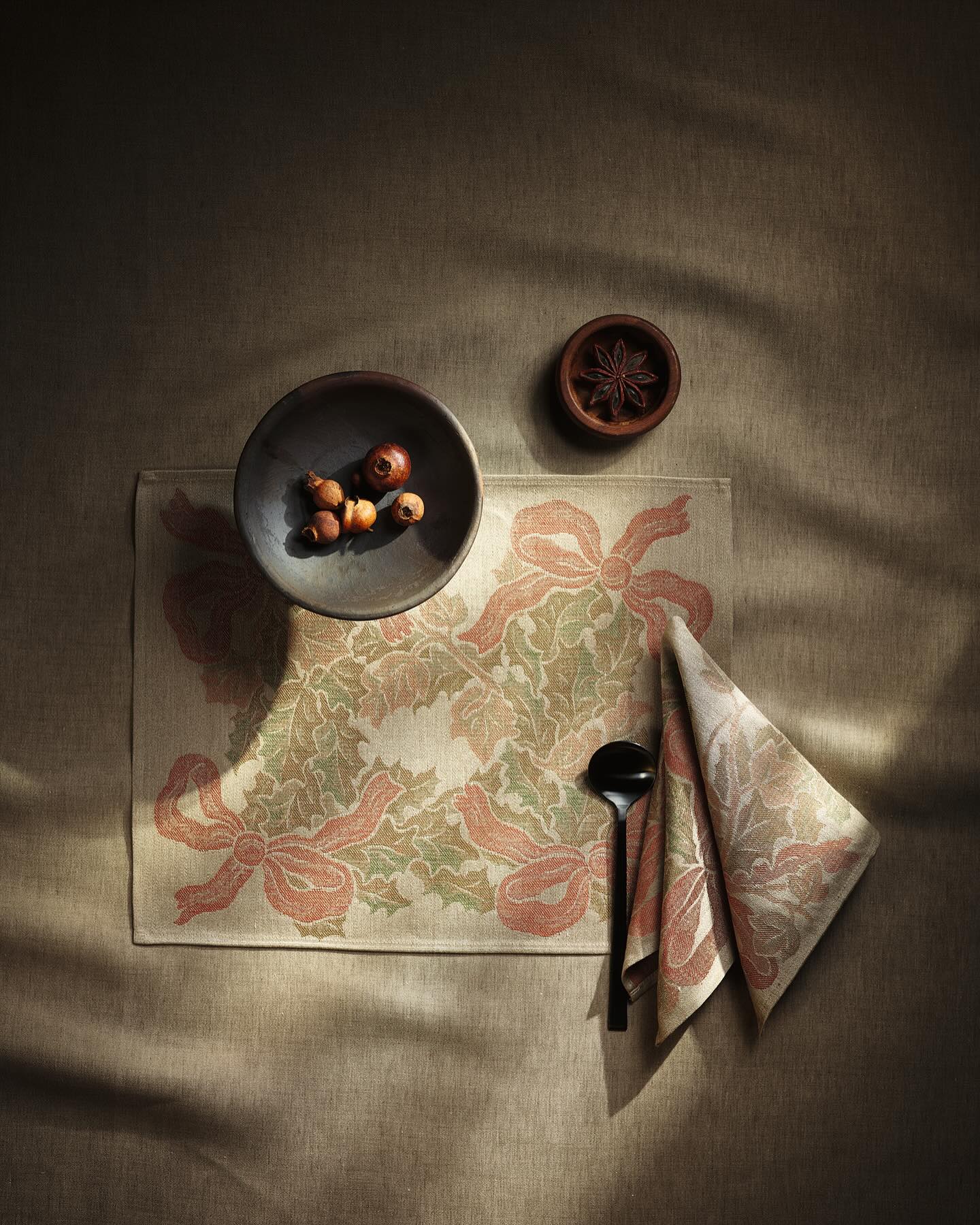Napkin Medusa - 267
Manufacturing
With their vibrant patterns and rich colours, our lightweight cotton napkins are a delight at the table. The napkins are cut individually, which means that, if a grand pattern was chosen, each one is unique and features a different detail. These napkins are made with three-centimetre-wide mitred corners.
Quality
- fine cotton
- cut straight along the thread
- sewn to order
About this fabric
The Medusa design, which is based on designs by the naturalist Ernst Haeckel, was developed in collaboration with the Ernst Haeckel boutique in Jena. The cotton used is characterised by its special staple length and gives the fabric a silky smooth surface and a wonderful feel.
Nature
- original design by Ernst Haeckel
- high-quality cotton
- natural sheen
- fine feel
About our manufacture
Our weaving mill in the Mühlviertel region of Austria has been manufacturing fabrics since 1853. Our family business is now in its 6th generation of management and stands for natural high quality textiles. With special devotion we have commited ourselves to Jacquard weaving, a technique that allows for richly detailed patterns. We uphold the strictest quality criteria in the selection of our cottons. This will become apparent when you hold our products in your hands.
Our values
- Family business in 6th Generation
- woven & sewn in Austria
The right care
Our cotton products are easy to care for. Although we recommend a washing temperature of 40 °C, our products are also able to cope with 60 °C without any problem. To avoid damaging the look and feel of the fabrics, use detergents without fabric brighteners or softeners. Low spin speeds and not using water-saving programmes also have a positive impact on the durability of the products.
Our tips
- We recommend a washing temperature of 40 °C or 60 °C
- Please do not use fabric brighteners or softeners
- Water-saving programmes are harmful to products made of natural fibres
- Suitable for tumble drying

Medusa - 267
The diversity of marine life was the great passion of German biologist Ernst Haeckel. He captured the beauty of jellyfish - also called Medusa - in sensational drawings. One of his studies served as the inspiration for this design, which was developed in collaboration with the Ernst-Haeckel-Haus museum in Jena, Germany. Ethereal creatures, floating as if bodiless - spellbound on fabric.
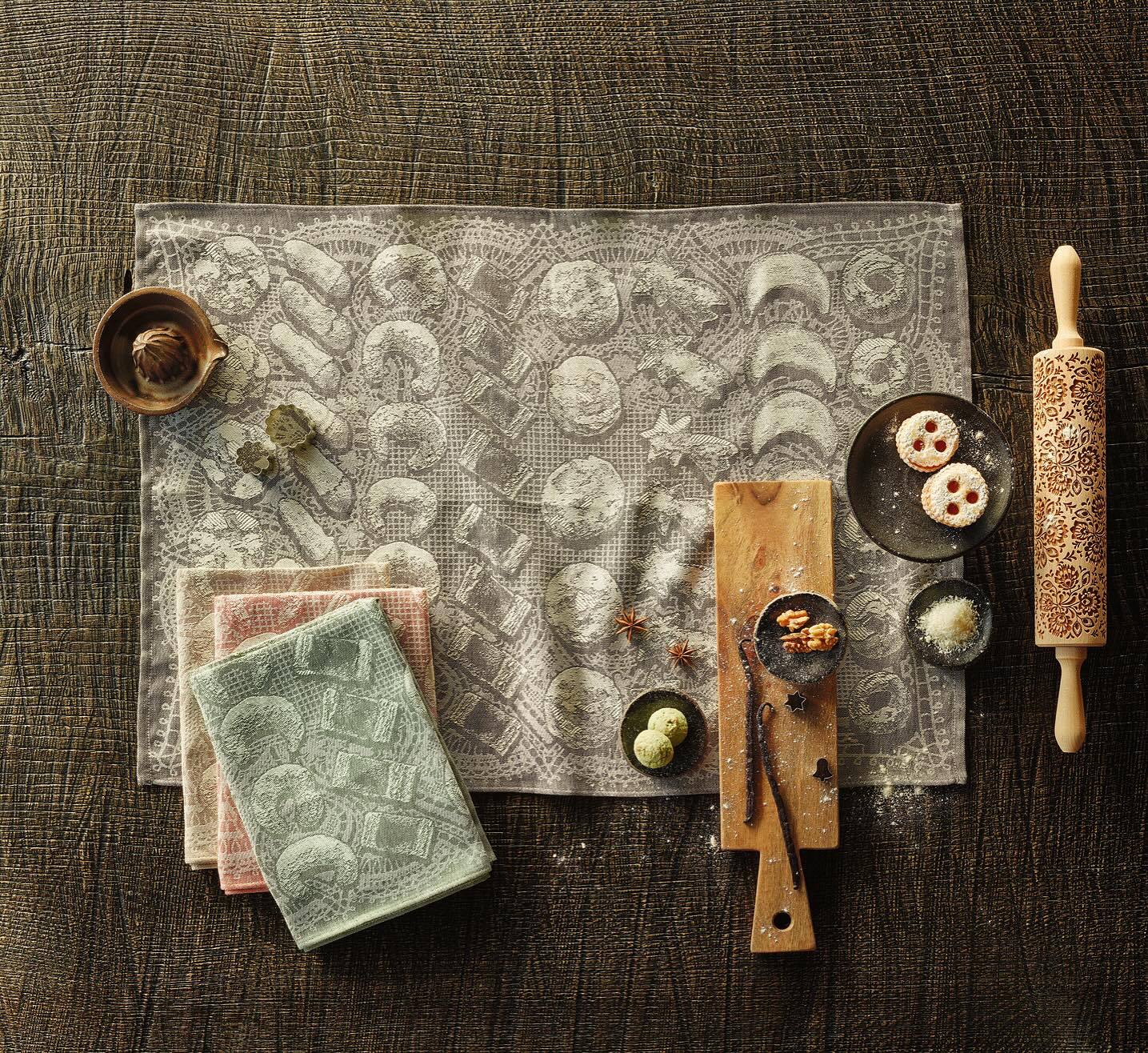
leitnerleinen Call it Kekse, cookies, biscuits or biscotti - our new kitchen towel is celebrating the diversity of Christmas baking. 🎄🎄🎄 #küchentuch #geschirrtuch #kitchentowel #teatowel #kekse #weihnachtsbäckerei #biscuits #cookies #christmascookies #linen #madeinaustria #weihnachtskekse #christmasbaking #torchon
November 28 2024 • View on Instagram
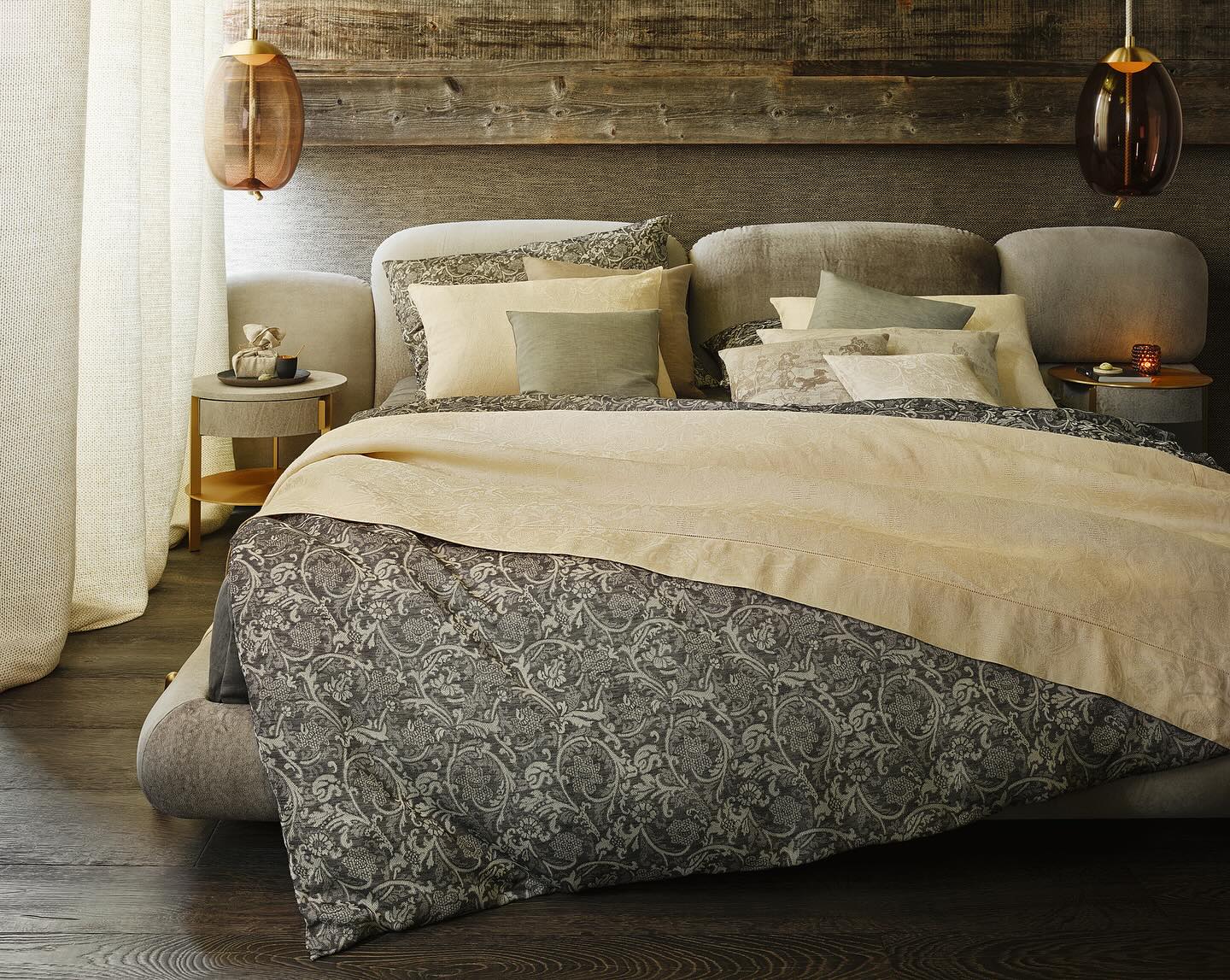
leitnerleinen Rocaille - link between Baroque and Rococo. While some elements still quote the symmetrical formal language of the Baroque, the curved rocailles, to which the pattern owes its name, already clearly show the formal language of the Rococo. A playful design that truly represents the classic style of Leitner Leinen as well as a long-awaited addition to our collection of linen-cotton fabrics. #bedlinen #bedding #linen #leinen #bettwäsche #leinenbettwäsche #rocaille #madeinaustria #bedroom #linens #lingedelit #linencotton #linenbedding
November 19 2024 • View on Instagram
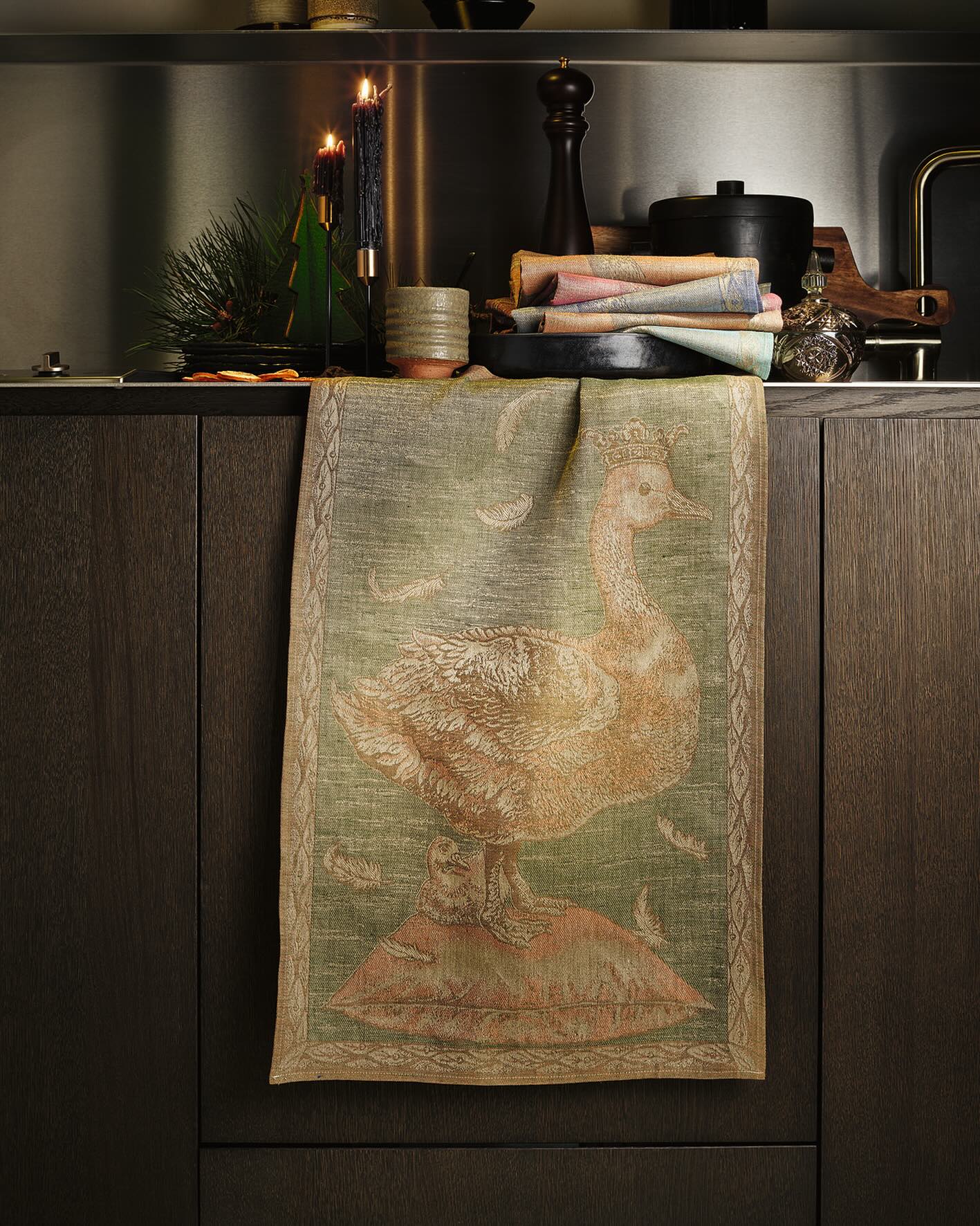
leitnerleinen The new kitchen towel 🪿🪿🪿 The Gans is your new escort through festive kitchen antics. Made from 100% linen in six selected colourways. #küchentuch #geschirrtuch #teatowel #kitchentowel #purelinen #linen #gans #goose #madeinaustria #leinen #küchenhelfer #kitchenhelper
November 5 2024 • View on Instagram
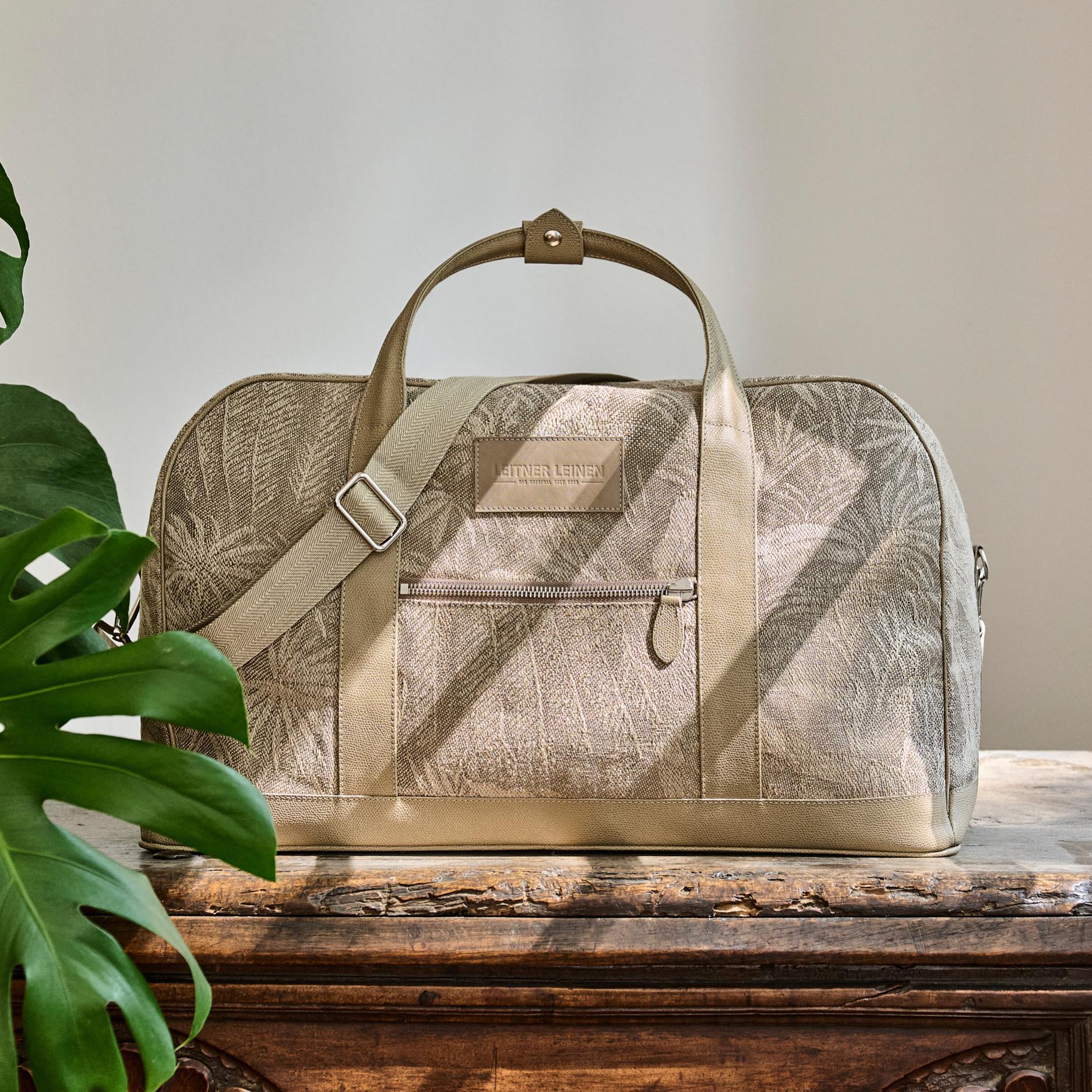
leitnerleinen Leitner Leinen X Ludwig Reiter Discover a unique collaboration celebrating traditional craftsmanship. In partnership with renowned Austrian manufactory @ludwig_reiter we combine the best of both our companies in a unique product. The playful Folia pattern made of robust pure linen meets high-quality calfskin from the French Tannerie Haas: these materials have been used by the Ludwig Reiter to create a unique travel accessory in perfected craftsmanship. The carefully handcrafted weekender is produced in an exclusive edition of 30 pieces. Now available. #madeinaustria #linen #weekender #travelbag #travelessentials #ludwigreiter #reisetasche #handwerk #luggage #limitededition #leinen
June 19 2024 • View on Instagram

leitnerleinen With their diversity and richness of detail the nature studies of the 17th and 18th centuries still inspire today. With Narzisse we bring this art of illustration and nature observation to new life. The playful design uses a simple frame that highlights the natural beauty of the flowers. #linen #tablelinen #serviette #napkins #tischkultur #madeinaustria #leinen #narzissen #tischdecke #nappe #floral
April 22 2024 • View on Instagram

leitnerleinen The four seasons and the eternal cycle as a floral allegory. Magnolia and chrysanthemum, camellia, lotus and lily – discover the endless diversity of a unique floral landscape. Jeju Gardens is made from 100% linen and is available in 13 lush and opulent colorways. Design by @sominkim.yh #floralfabric #tablelinen #tischdecke #minhwa #koreanart #koreanpainting #tablecloth #tischkultur #jeju #floraldesign #linen #madeinaustria
March 25 2024 • View on Instagram






